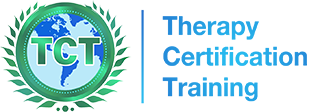This shift in perception did much to alleviate the shame associated with the condition, which led alcoholics to seek treatment and recovery. It also led to a great deal of research and the development of medical and pharmacological interventions for this disease.
The 1960s and the Viet Nam war brought national awareness to heroin addiction, which proliferated during this time, and while the stigma of being a “junkie” was reminiscent of the old “winos,” treatment centers sprung up and research leading to the use of methadone quickly followed.
The 1980s brought us cocaine and a realization that this was a really powerfully addictive drug, contrary to the current beliefs that, because of the lack of physical dependence, it could be taken without fear of consequences.
The 1990s brought an awareness of “process” addictions, such as gambling, shopping, and sex. The internet made it all the easier to become addicted to everything that gives us pleasure.
Addict America: The Lost Connection conceptualizes addiction as a state of being that results from our highly stimulated lifestyles of excess. We are addicted to stimulation, period. Once you are an addict, you can get stimulated by any and everything and will create drama and crisis to just feel normal.
Addiction has moved beyond the disease model. We know enough about the brain now to see addiction as something measurable and observable. Just as we realized that cocaine could be addictive without the physical dependence that alcohol and heroin caused, so now it is apparent that the process addictions do exist and cause physiological and brain chemical changes.
Addiction is not about a moral judgment and it is not about using the disease concept to avoid taking responsibility for one’s behavior. Addiction is obsessive, compulsive, out of control behavior done in spite of negative consequences to self and others. For instance, sex addiction is not even about sex, it is about particular thoughts and behaviors that the brain associates with stimulation and are done more for escape than to feel good.
Addiction is a state of being that prevents intimacy, maintains distance from those we love, perpetuates the restless seeking of more power, money, stuff, and keeps us from appreciating our daily lives.
Recovery is about being present, enjoying each moment, and being aware of our Connection to all living things and accessing the wisdom of the Universe.
So is addiction a disease? Does it matter? A rose by another name…………..
The only thing that matters is the question: Is this for my addiction or is this for my recovery?










